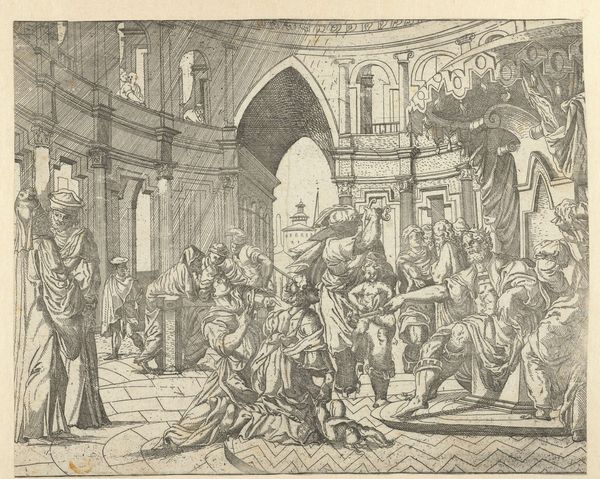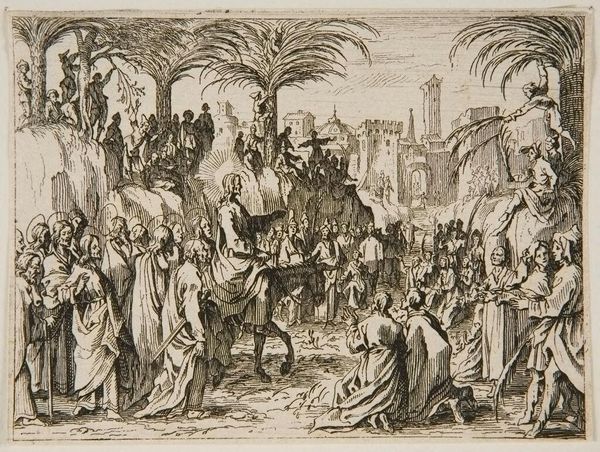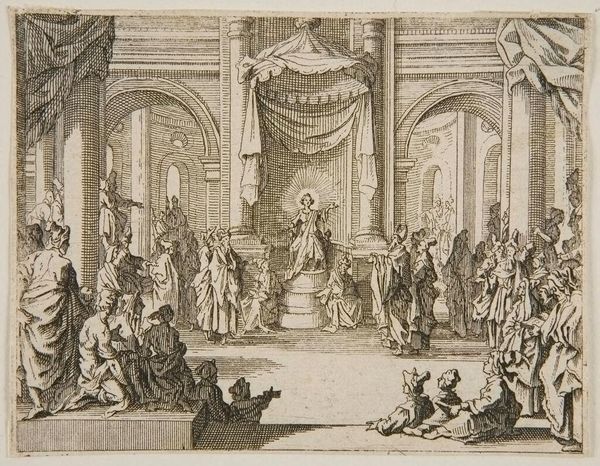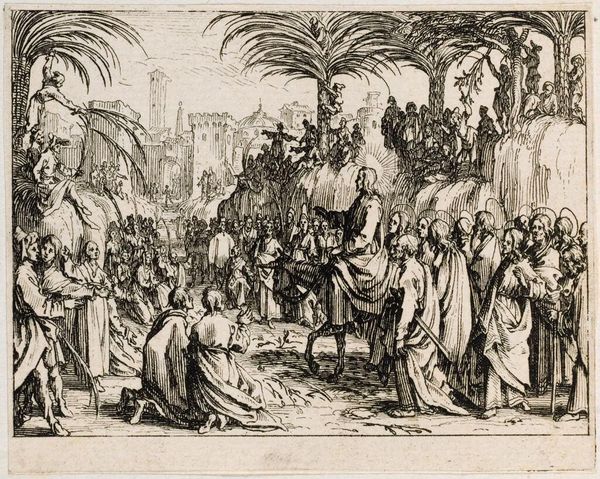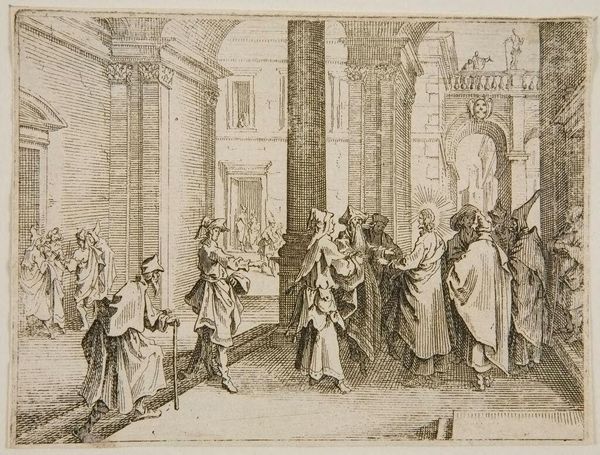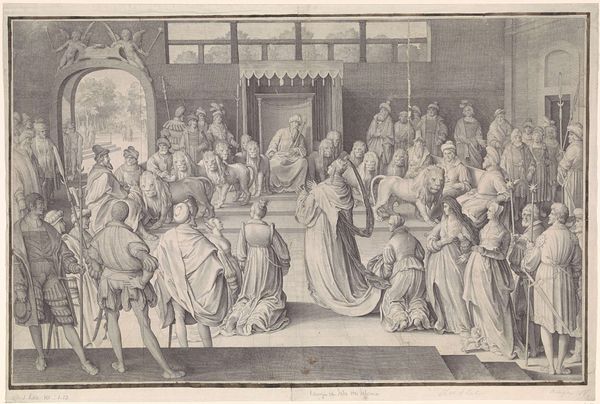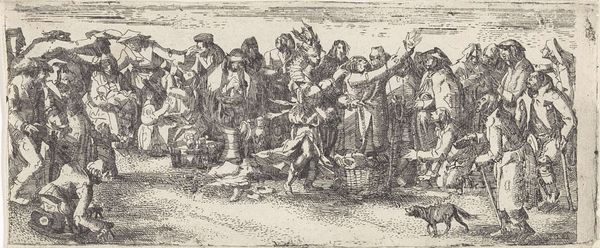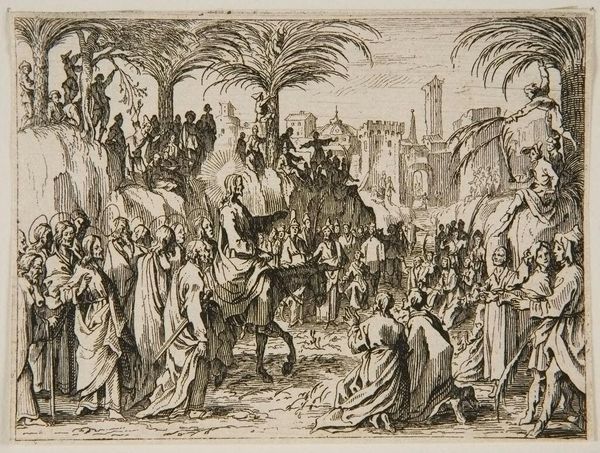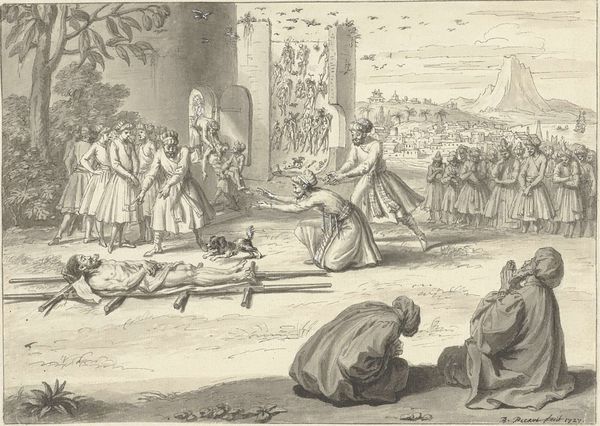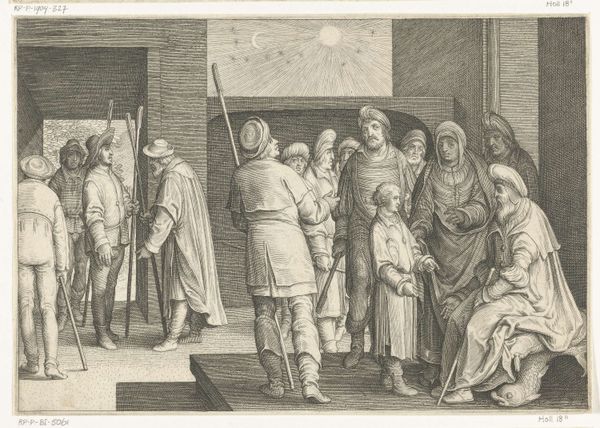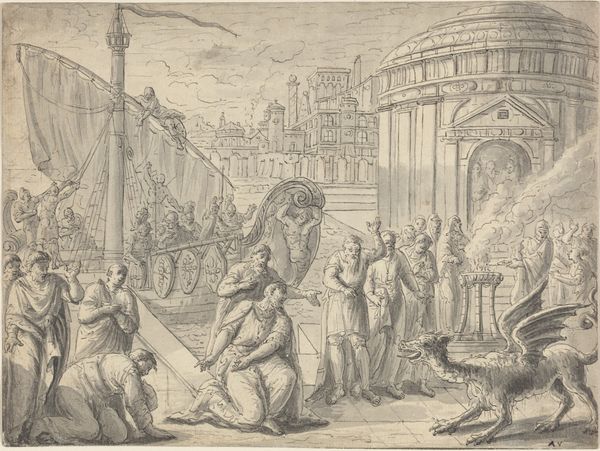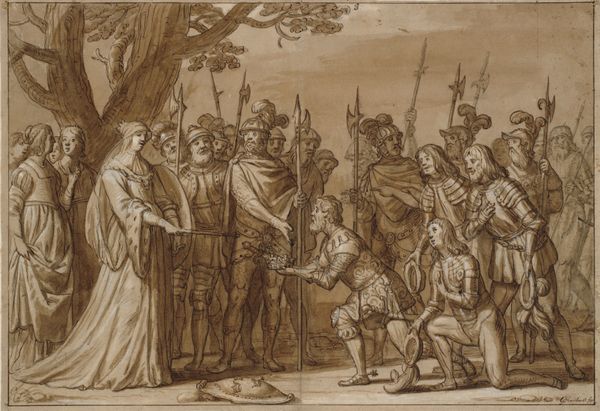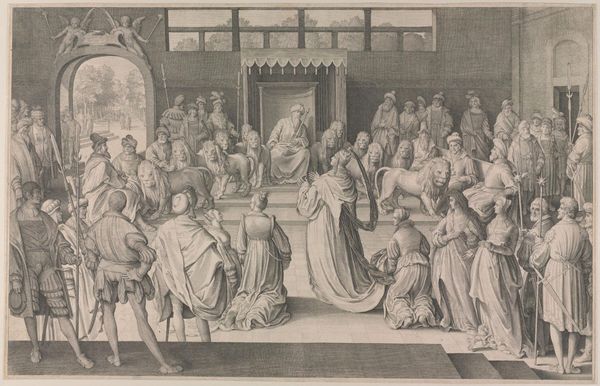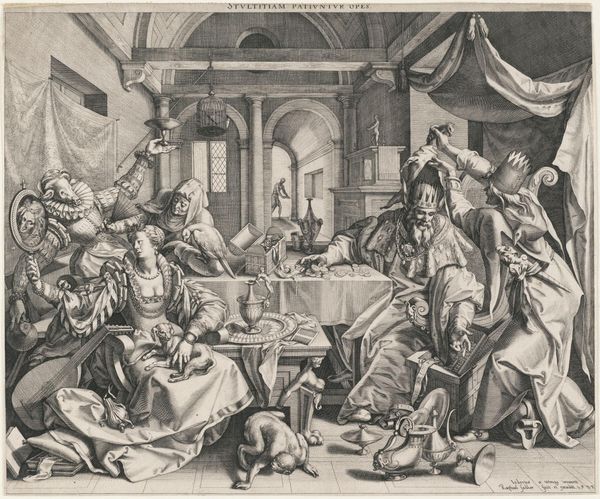
painting
#
portrait
#
baroque
#
painting
#
group-portraits
#
genre-painting
#
history-painting
Dimensions: height 75 cm, width 101 cm
Copyright: Rijks Museum: Open Domain
Jean Baptiste Vanmour's "The Murder of Patrona Halil and his Fellow Rebels" is an oil painting, made sometime in the early 18th century. Oil paint is a fascinating material. It’s made of pigment, which provides the color, and oil, which binds the pigment particles together. The beauty of oil paint lies in its versatility. It allows for smooth, almost seamless blending, and capturing subtle shifts in light and shadow. Consider the narrative that Vanmour depicts: a violent clash of power. It is a scene of turmoil, yet the oil paint is used to render it with a certain smoothness and clarity. This almost classical approach – the figures are so carefully rendered – serves to lend a note of authority to the depiction. Vanmour worked as a court painter for the Ottoman Empire. The painting then, like the painter, was literally in the service of power. Paying attention to the materials and making of art allows us to understand its social and political contexts, enriching our appreciation.
Comments
rijksmuseum over 2 years ago
⋮
After Mahmud I ascended the throne, the rebels continued to sow unrest. They tried to gain positions in the govern-ment and demanded ever more power. With a sham excuse, Mahmud I summoned them to the palace, where they were killed one by one. Patrona Halil is being overpowered at the right.
Join the conversation
Join millions of artists and users on Artera today and experience the ultimate creative platform.
